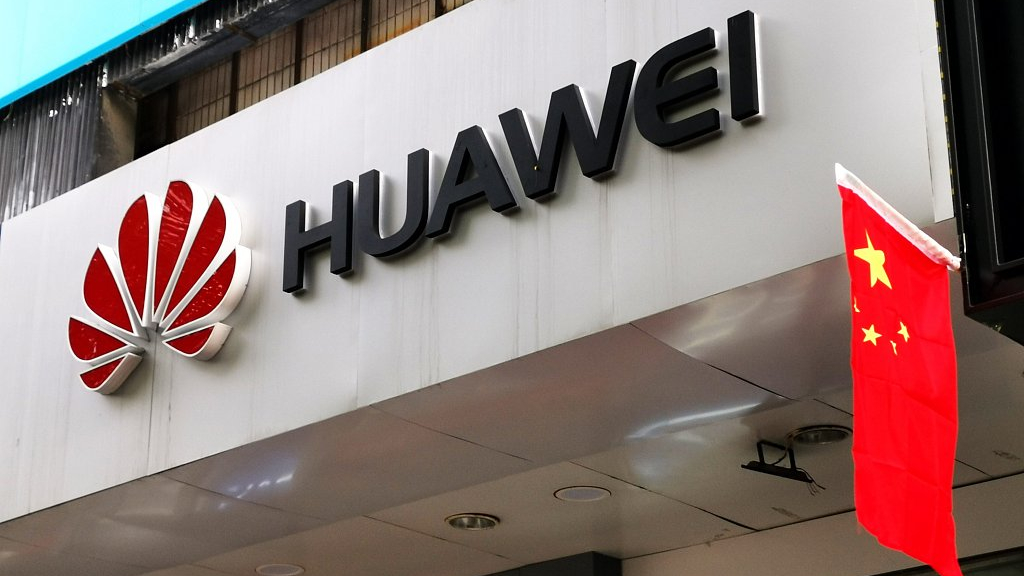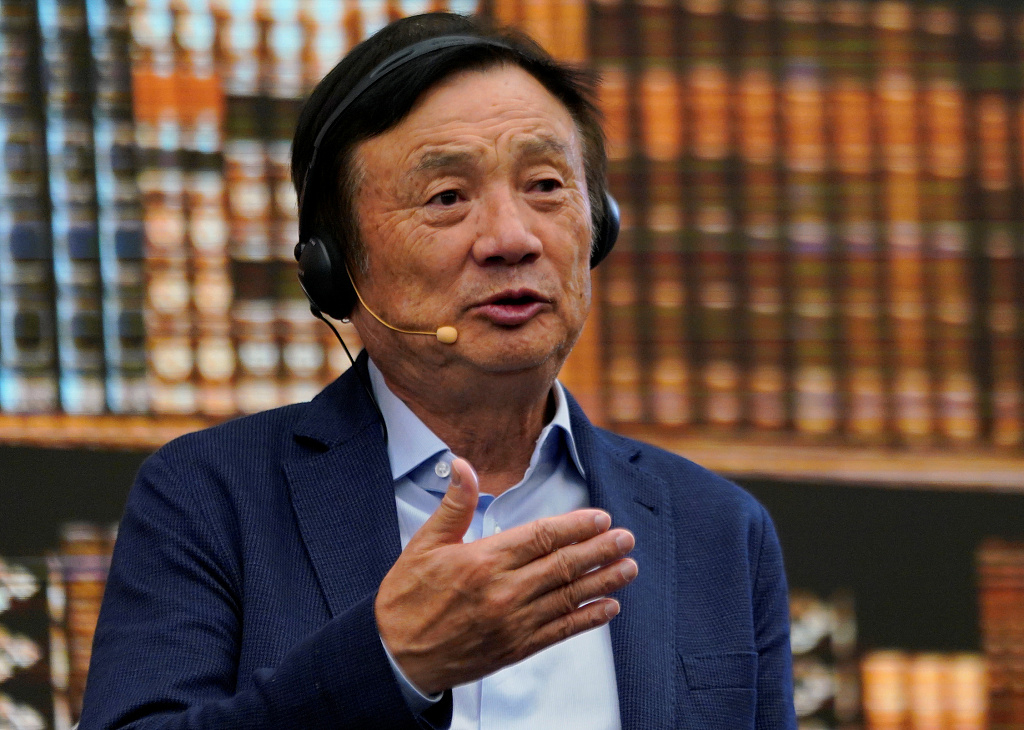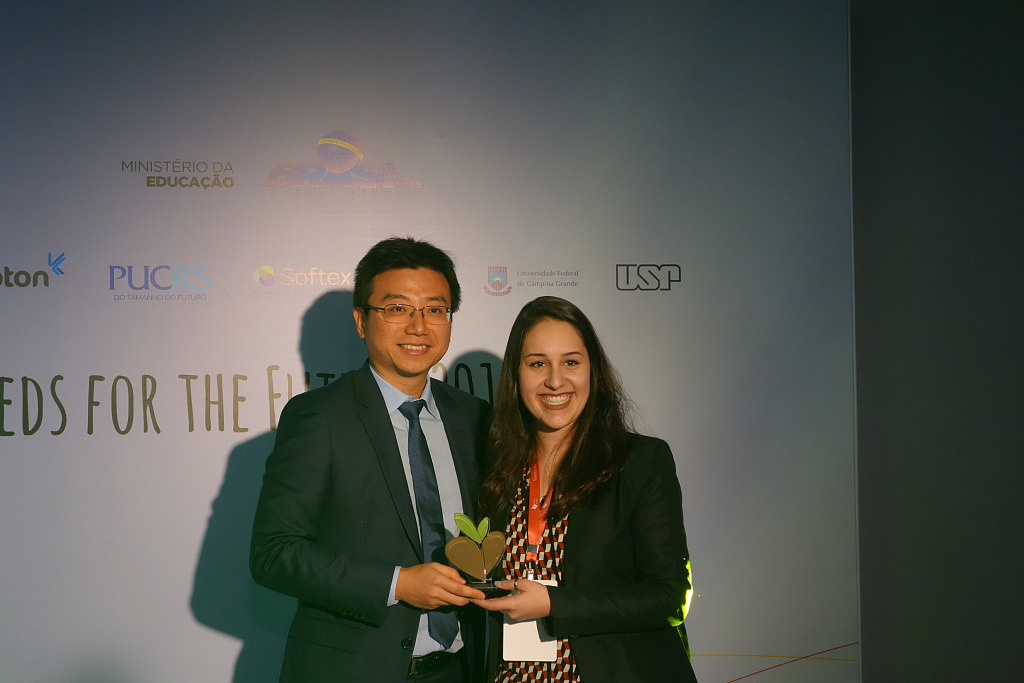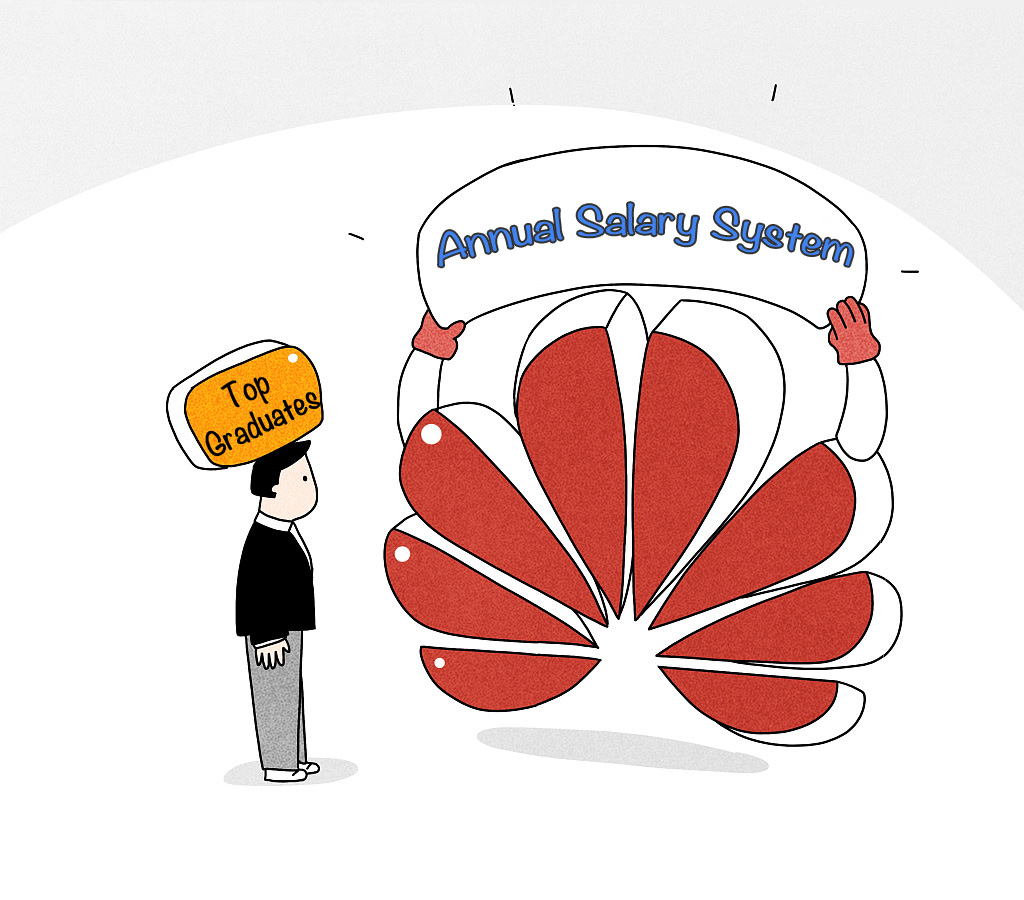
A Huawei store and a national flag in Beijing, October 5, 2019. /VCG Photo
A Huawei store and a national flag in Beijing, October 5, 2019. /VCG Photo
Editor's note: Jeff Towson is a private equity investor and advisor with 20 years of experience across the U.S., China/Asia and the Middle East. He is a Peking University professor, best-selling author and keynote speaker. His writing and speaking are on digital China and on Asia's latest technology trends. His latest books are the "One Hour China Book" and the "One Hour China Consumer Book." Both were (are) Amazon best-sellers. The article reflects the author's opinion, and not necessarily the views of CGTN.
President Trump's placement of Huawei on the U.S. entity list was a body blow. The magnitude of the hit should not be understated. Being cut off from U.S. technology so suddenly staggered the multinational. But, to their credit, Huawei didn't go down. They took the hit and stayed on their feet.
I'm not really sure what the U.S. government thought it would achieve with the ban. To stop Huawei's growth in international markets? To shift 5G market share to Ericsson and Nokia? To cripple the company? Just an assertion of principle?
I think they really just don't understand Huawei.
Yes, the U.S. government can hurt Huawei in the short term by limiting their access to technology (and to certain foreign markets). But, absent a viable competitor, this won't have much impact in the long term. Because Huawei is fundamentally not a technology company. Huawei is a human resources company. And is kind of obsessed with survival.

Huawei founder Ren Zhengfei attends a panel discussion at the company headquarters in Shenzhen, Guangdong Province, China, June 17, 2019. /VCG photo
Huawei founder Ren Zhengfei attends a panel discussion at the company headquarters in Shenzhen, Guangdong Province, China, June 17, 2019. /VCG photo
Huawei's core strategy has always been about survival.
If you read Ren Zhengfei's talks and papers going back to the early 1990's, what jumps out at you is how different Huawei is. The goal of the company has never really been about money. Nor about becoming a tech giant. Nor about innovation. And it has definitely not been about going public and getting a big payday. Huawei's fundamental purpose has always been about survival.
"Being big and strong temporarily is not what we want. What we want is the ability and resilience to survive sustainably," said Ren in 2001.
Actually he has been talking for literally decades about how Huawei can survive long-term – and about the common causes of corporate decline. My simplistic take is that Ren came up with a fairly logical plan for long-term survival: Serve your customers no matter what. Then get big and slowly grind your competitors down with lower costs and greater R&D spending. And within this, the only resource you really have are your people and their cumulative brainpower.

Huawei has selected 20 "future seed" students from Brazil to study in China, June 6, 2017. /VCG Photo
Huawei has selected 20 "future seed" students from Brazil to study in China, June 6, 2017. /VCG Photo
Huawei's main resource is its people.
Huawei, like most engineering-based enterprises, has only one real resource, which is the cumulative brainpower of its people. This is the resource that creates the products and sells them to their customers. And as technology changes quickly, they must continually create and recreate the products – and therefore the value of the enterprise. Huawei's main strength is the system they have developed for the creation, assessment and distribution of value by over 190,000 people. It's about HR strategy.
Unlike the companies in the U.S. and Europe, where the shareholders are the stakeholders with ultimate say or multiple stakeholders, such as employees, owners and the community, at Huawei, the only stakeholders you ever really hear about are the current employees. It's all about the top contributing, current employees. Shareholders, providers of capital, retired employees and even the founders are all a distant second in importance.
Note how different this is to other large engineering-focused companies (say GM and Bosch), where much of the value goes into guaranteed salaries (regardless of contribution) and into post-retirement benefits (i.e., not current employees). Huawei is not only focused primarily on this one group, they are also operating much more as a meritocracy with regards to labor.
Huawei to me looks a lot like what 3G capital has been doing in consumer-facing companies like Budweiser and Burger King. They have instituted "meritocracy and partnership" on a massive scale in a knowledge business. There is a lot of ownership. And you rise and fall based on your performance.
Huawei is awesome at inspiring dedication in their top contributing, current employees. And that is pretty logical. If brainpower is Huawei's main resource, this is the group that creates that value. So recruiting and motivating this group is the biggest priority. And they don't just want them motivated. They want them "all in."
In practice, this is actually pretty complicated. It's a big company. Employees are at different stages of their lives and careers. How do you get current staff, senior staff and incoming staff to go "all in" in creating value for customers – and therefore the enterprise?
My outsider's take is that Huawei is mostly focused on motivating teams and team managers. High-performance teams with aggressive and dedicated managers are the engine of Huawei. And these are mostly in sales and marketing and R&D. They make the largest contributions to the customers and therefore the enterprise. You motivate at the team level and within the departments that matter most. And then you scale it up.
But how do you assess contributed value?
Staff are rated every 6-12 months across metrics such as sales performance (usually team-based), talent, dedication, and the potential for advancement. The phrases I keep coming across in my reading are "dedicated employees" and "high-performance teams." In fact, the book on their HR book is titled Dedication.

Huawei offers eight top graduates an annual salary of up to 2.01 million yuan. /VCG Photo
Huawei offers eight top graduates an annual salary of up to 2.01 million yuan. /VCG Photo
Once assessed, how do you reward performance?
High-performing contributors are given higher bonuses, of course. But they are also identified and given more opportunities (and responsibilities). They are given more training and the option to participate in the employee share ownership program (very important). Low performers, in contrast, are demoted or exited. Meritocracy works in both directions.
And this brings us back to the main point of this article: How does the U.S. tech ban impact any of this? How does it impact an HR system for motivating the more than 190,000 employees that continually recreate the company and ensure its survival?
In the long term, it doesn't.
Yes, the company took a big hit in the short term in terms of its access to tech (especially in semiconductors and in the consumer business) and to a few markets. But the core of the company is still churning along like it has for 30 years. And I think it is very likely Huawei will overcome these supply chain problems. And, ironically, the current crisis is probably resulting in increased motivation and dedication across the company.
(If you want to contribute and have specific expertise, please contact us at opinions@cgtn.com.)